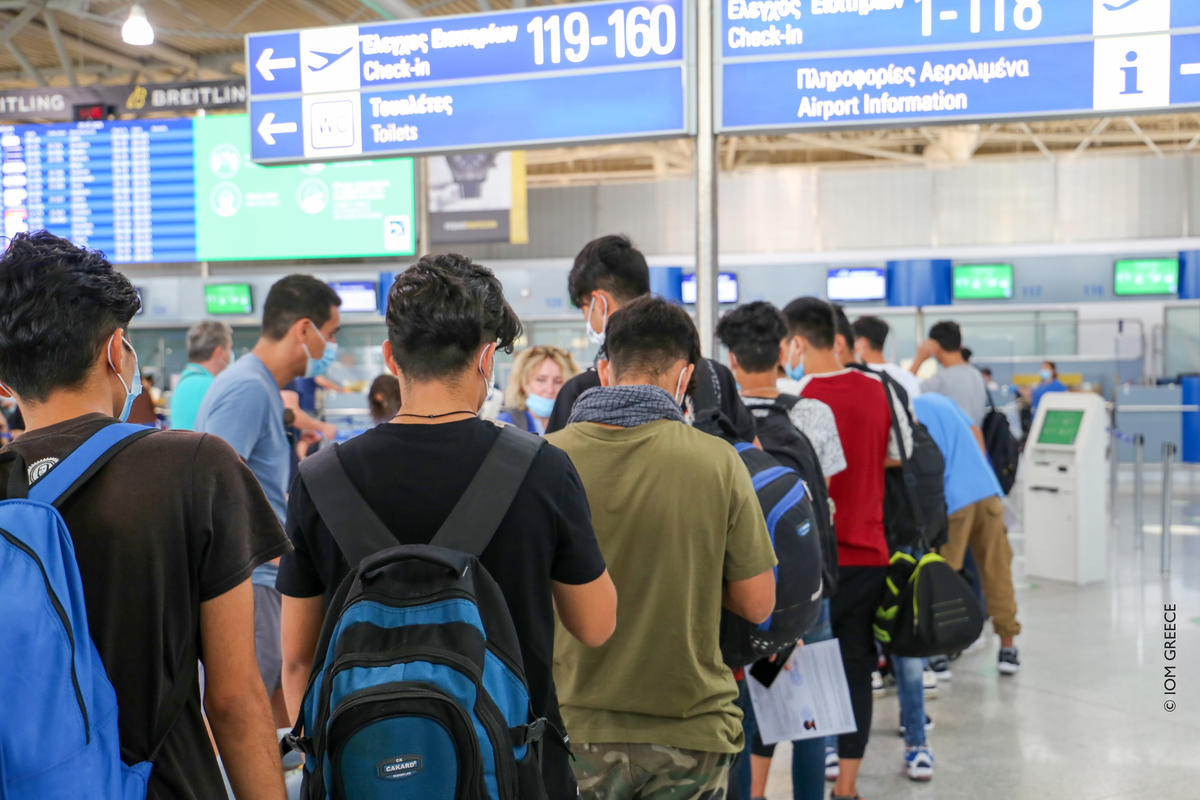UNHCR calls for access, transparency after Lampedusa deportations
UNHCR calls for access, transparency after Lampedusa deportations

GENEVA, March 18 (UNHCR) - The UN refugee agency has appealed to the Italian authorities for more access and transparency following yesterday's deportation of some 180 people from Italy's Lampedusa island to Libya.
The group was deported on Thursday on two flights, with an Italian police escort. Prior to that, they had been living at the reception centre on Lampedusa since arriving on boats over the past week or so. UNHCR, which sent a senior staff member to the island, has so far been denied access to the centre. The agency has repeatedly asked the Italian authorities for access to ensure that anyone who wishes to make an asylum claim can do so, and that the claims are properly and fairly assessed.
During a very similar episode last October, UNHCR was eventually permitted to enter the centre, after more than 1,000 people had been flown back to Libya. On that occasion, the agency believed that individuals who might have had a valid claim were not given proper assessment because of the rushed methods used to sort people by nationality.
"We fear that the same concerns may apply to this week's developments in Lampedusa," said UNHCR spokesman Ron Redmond in Geneva on Friday. "In other words, it is far from clear that Italy has taken the necessary precautions to ensure that it is not sending back any bona fide refugees to Libya, which cannot be considered a safe country of asylum."
He added that UNHCR deeply regrets the continued lack of transparency surrounding these events. As a result, suspicions that there may have been breaches of international refugee law will be hard to put to rest.
He noted that UNHCR is also concerned by reports that Libyan officials were flown in to Lampedusa and given access to the people in the centre. In UNHCR's view, it is not appropriate to involve officials of third countries until it is clear who the people are, whether they have any links to such countries, and what their reasons for moving are.
As for the people sent back to Libya last October, UNHCR has tried unsuccessfully to gain access to them. The agency has thus been unable to ascertain if there were refugees among them and that none of them subsequently came to any harm. Libya has not signed the 1951 UN Refugee Convention, and does not have a functioning national asylum system. There is a risk that refugees in need of international protection may be sent back from there to their homeland, Redmond cautioned.
The UNHCR spokesman appealed for the deportations to stop, so that those among the 633 persons remaining in the centre at Lampedusa who wish to make an asylum claim, can do so. He also expressed regret that despite recent experiences, the Italian authorities have made no attempts to enlarge the centre.
"With a capacity of a mere 190, the centre is easily overwhelmed, creating an air of crisis that is perhaps not strictly necessary," he said.
Among the big European Union countries, Italy has one of the lowest annual asylum claims, averaging around 11,000 per year over the past 10 years.
"UNHCR agrees that asylum procedures to determine manifestly unfounded claims should be efficient, and could be subject to a simplified review," said Redmond. "It is essential, however, that all asylum seekers have access to an asylum procedure, with the necessary safeguards."
He added that UNHCR stands ready to work with the Italian and Libyan authorities to develop approaches that would better reconcile concerns over irregular migration with the right to seek asylum and the obligation to provide protection to refugees.
By Rupert Colville
UNHCR Geneva









